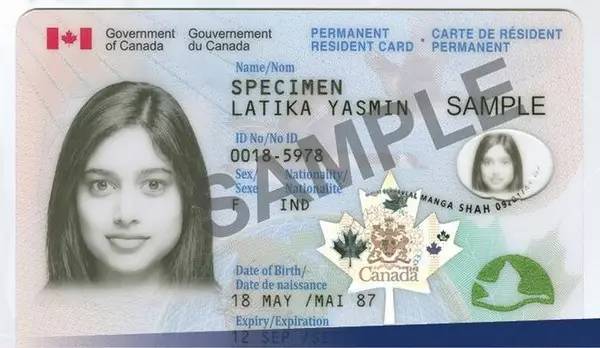Canadian Social Welfare Is Famous To Attract Immigration Boom, And Holding Maple Leaf Card Has These Benefits
Canadian Social Welfare Is Famous To Attract Immigration Boom, And Holding Maple Leaf Card Has These Benefits
Let's learn about it together
Canada's social welfare system is well-known worldwide, so many people tend to immigrate to Canada. So, what are the advantages of holding a Canadian maple leaf card? Canada's welfare mainly covers child care, unemployment relief and poverty assistance, especially the subsidy policy for the elderly is very significant. Depending on personal needs, you can enjoy diversified social security. Because of this, many people are eager to immigrate to Canada to obtain a maple leaf card and enjoy their social benefits.
What is the use of a maple leaf card?
There is no need to worry about housing issues. In order to achieve the goal of "sanctifying poverty and all the poor in the world to love each other", the Canadian government invests funds every year to build a large amount of public housing. These housing is managed by government-designated businesses, which, in some way, is actually a benefit for low-income groups. Once you hold a "maple leaf card", you are eligible to apply for these government-provided housing.
If you immigrate to Canada and obtain a maple leaf card, the pressure of parenting will be greatly reduced. Even if you welcome any of the twelve zodiac signs, you don’t need to worry about financial burdens. In Canada, preschool education for children under 6 years old is individually borne, and the monthly childcare cost is as high as 600 to 800 Canadian dollars. For this reason, the government has specially established a childcare subsidy program. The milk money system stipulates that from the birth of the child to the age of 18, they are eligible for this funding every month. The original intention of this policy is to support families with lower income levels, and to motivate people to have more children.
Health insurance programs are available in all provinces in Canada that provide affordable and high-quality health care services. The Canadian government invests approximately CAD$4.8 billion a year to support the implementation of medical benefits. These insurance plans cover a variety of medical services, including outpatient, hospitalization, and surgery, but the cost of medicines is not covered. If a family doctor recommends that you be hospitalized or undergo surgery, all related expenses will be borne by the health insurance plan regardless of the size of the surgery. During the hospitalization of patients, they are not responsible for any expenses, whether it is diet or medication expense. For the elderly aged 65 and above and those receiving social assistance, most of the prescription drugs they prescribe are provided for free.
There is no need to worry about retirement, as Canadian provinces have implemented Canadian retirement plans. The plan is a public insurance program. Canadian residents allocate a portion of their funds from their income every month as pension contributions. Once they retire or experience long-term physical disorders, they can receive corresponding subsidies through this plan. Pensions are subject to taxes and are eligible for any location where the applicant is.
Social welfare funds form the basis of Canada's social security system and aim to ensure that every Canadian citizen reaches a basic standard of living. Regardless of whether the resident has no income or not, as long as the bank deposit does not exceed CAD 1,000, they are eligible to apply. Singles can receive between $500 and $700 a month, while families of three can receive about $1,100 to $1,300, which is enough to maintain a lower standard of living. New immigrants often do not receive this benefit in the first six months of their arrival in Canada, so they must prepare a fund after they arrive to ensure they can support the next six months of living expenses.
Canada's legal retirement age is 65 years old. Regardless of the residents' assets or income status, as long as they live in Canada for ten years, they are eligible to join the "Elderly Welfare Protection Program". It is worth noting that pensions are not automatically paid by the government after retirement. Applicants must submit an application to the government within twelve months before their 65th birthday before they can start receiving pensions. Pensions are similar in nature to China's minimum living security fund. The amount of the money depends on the length of time the applicant lives in Canada and is paid monthly by the federal government.
In addition to the above benefits, Canada also provides a wealth of allowances, such as disease allowance, maternity allowance, partner allowance, etc., which can almost satisfy all your imagination and can be achieved in Canada! As long as you hold a maple leaf card, these benefits can be enjoyed easily.
There are also the benefits of holding a Canadian maple leaf card:
Although Canadian permanent residents are unable to participate in political elections, they are otherwise quite consistent with the basic rights enjoyed by Canadian citizens.
People with Canadian immigration visas often get approval more smoothly when applying to other countries for study or travel. When they went to the United States for example, they often easily obtained multiple round-trip visas valid for up to ten years.
In addition to key positions involving state secrets, persons with permanent residence are allowed to serve in any enterprise.
4. You can freely travel between China and Canada without any procedures.
5. Protected by Canadian laws and enjoy equal rights for everyone before the law.
Provide free primary and secondary education services, free vocational training opportunities, and enjoy social insurance benefits, and priority to applying for specific educational aids.
7. The right to enter, stay or leave Canada.
8. The right to freely choose a career and place of residence.
9. Enjoy the right to be educated in ethnic minority languages.
After obtaining the Canadian Maple Leaf Card, cardholders become permanent residents while retaining their Chinese nationality, and they can travel back and forth between China and Canada freely.





